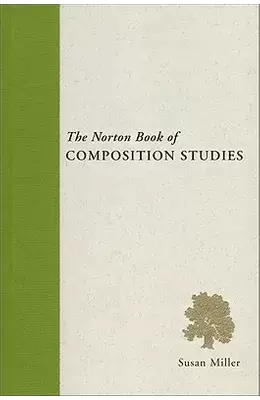James Kinneavy's "Expressive Discourse"
James Kinneavy’s chapter “Expressive Discourse” prompted me to think about the value and emphasis we place on the expression of the self. Placing an importance on the individual expressing him or herself is widely encouraged today, but in the Middle Ages, for example, self-expression was frowned upon, authorship was largely anonymous, and subject matter was often religious, not personal. In the modern world, however, artists often take themselves or their experiences as subjects and proudly sign their names.
We can look at it from two vantage points. The first is the vantage point of the “For-Itself”, and the other is the vantage point of the “Being-for-Others”, to use Sartre’s terminology. Looking at the For-Itself, we can argue that there is something meaningful or important happening for the “I” that is expressing itself. In other words, what value is there for the For-Itself to be able to express itself? Following Sartre’s thought, Kinneavy argues that the ability of the “For-Itself” to express itself(through interacting with the world to achieve “goals”) is tantamount to meaning and self-definition. But outside of meaning and self-definition, what value is there in being conscious of what you are doing in the world? Or, put another way, what is the “I” celebrating other than the acknowledgment that it is an “I”. Or, what is the For-Itself celebrating other than the obvious and inevitable fact that it knows it is moving through the world in a particular fashion? It seems that the For-Itself expressing itself is meaningless, in that the For-Itself simply redefines itself continually as it moves through space and time and chooses new goals.
Where it gets interesting is when we look at the other vantage point – that of “Being-for-Others”. Kinneavy, again borrowing from Sartre, states that when we treat the Other as another consciousness and not as a mere object, we gain the distinction of being a “somebody”. The For-Itself now becomes a “Being-for-Others” and moves through the world knowing that Others are aware of it. So, the benefit of self-expression here seems to be the fact that each “Being-for-Other” now has an audience. Ultimately, self-expression becomes a way to attract Others in an attempt to receive the ultimate prize – love.
It would seem, then, that the For-Itself expresses itself meaninglessly, whereas the Being-for-Others expresses itself meaningfully. More specifically, the Being-for-Others expresses itself always in an attempt to be loved. It wants to be “more than a thing, more than an instrument” (383), although it is not clear why this is the case. It seems to be a life-force that runs through each of us, so that very lonely people, for example, suffer terribly. At any rate, looked at from this perspective, each instance of creative or expressive writing in our schools(or anywhere) may be seen, ultimately, as the fulfillment of a student’s need to be loved. The technical mastery of writing, then, may be seen as the set of tools with which a student learns to better express him or herself, in order to more fully attract Others.
“Expressive Discourse” by James Kinneavy. Excerpted from The Norton Book of Composition
Studies (Vol. 1, pp. 372-386). London, England: W.W. Norton, 2009. Susan Miller (Ed.).
We can look at it from two vantage points. The first is the vantage point of the “For-Itself”, and the other is the vantage point of the “Being-for-Others”, to use Sartre’s terminology. Looking at the For-Itself, we can argue that there is something meaningful or important happening for the “I” that is expressing itself. In other words, what value is there for the For-Itself to be able to express itself? Following Sartre’s thought, Kinneavy argues that the ability of the “For-Itself” to express itself(through interacting with the world to achieve “goals”) is tantamount to meaning and self-definition. But outside of meaning and self-definition, what value is there in being conscious of what you are doing in the world? Or, put another way, what is the “I” celebrating other than the acknowledgment that it is an “I”. Or, what is the For-Itself celebrating other than the obvious and inevitable fact that it knows it is moving through the world in a particular fashion? It seems that the For-Itself expressing itself is meaningless, in that the For-Itself simply redefines itself continually as it moves through space and time and chooses new goals.
Where it gets interesting is when we look at the other vantage point – that of “Being-for-Others”. Kinneavy, again borrowing from Sartre, states that when we treat the Other as another consciousness and not as a mere object, we gain the distinction of being a “somebody”. The For-Itself now becomes a “Being-for-Others” and moves through the world knowing that Others are aware of it. So, the benefit of self-expression here seems to be the fact that each “Being-for-Other” now has an audience. Ultimately, self-expression becomes a way to attract Others in an attempt to receive the ultimate prize – love.
It would seem, then, that the For-Itself expresses itself meaninglessly, whereas the Being-for-Others expresses itself meaningfully. More specifically, the Being-for-Others expresses itself always in an attempt to be loved. It wants to be “more than a thing, more than an instrument” (383), although it is not clear why this is the case. It seems to be a life-force that runs through each of us, so that very lonely people, for example, suffer terribly. At any rate, looked at from this perspective, each instance of creative or expressive writing in our schools(or anywhere) may be seen, ultimately, as the fulfillment of a student’s need to be loved. The technical mastery of writing, then, may be seen as the set of tools with which a student learns to better express him or herself, in order to more fully attract Others.
“Expressive Discourse” by James Kinneavy. Excerpted from The Norton Book of Composition
Studies (Vol. 1, pp. 372-386). London, England: W.W. Norton, 2009. Susan Miller (Ed.).
